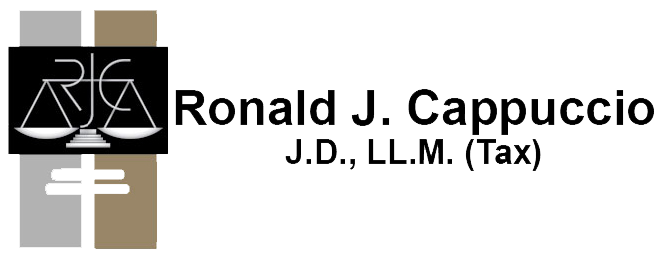The Internal Revenue Service has issued what is known as an “Internal Revenue Notice” taking the position that expenses paid under the Paycheck Protection Program Loan is not a deductible business expense. The IRS argument is that since Congress determine that forgiveness of the PPP loan would not be considered taxable income it would be a quote double benefit” to have the money not included income and the expense at deduction. That may be the IRS current positionDivision of Taxation it is not supported by the legislation.
This position seems to be counter to the purpose of the PPP loan program which is to jumpstart businesses and rehire employees without having the forgiveness of indebtedness income that typically comes with loan forgiveness. It will be an interesting argument which hopefully Congress will settle. If not will be an argument for the courts in the interpretation of the legislation.
In the meantime, it is very important for recipients of the PPP loan to speak with her tax attorney to make sure that the funds are being spent in the correct way to ensure that they will be forgiven. There is a good chance that the typical expenses, including payroll, will be deductible and the loan not includable in income.
Nevertheless, here is the Thomson Reuters report on the IRS position as of April 30, 2020:
Expenses paid with forgiven Paycheck Protection Program loan not deductible
Notice 2020-32, 2020-21 IRB
In a Notice, the IRS has clarified that no deduction is allowed for an expense that is otherwise deductible if both
1. The payment of the expense results in forgiveness of a loan made under the Paycheck Protection Program and
2. The income associated with the forgiveness is excluded from gross income pursuant to Coronavirus Aid, Relief, and Economic Security Act.
Background—Paycheck Protection Program. Under Act Sec. 1102 of the Coronavirus Aid, Relief, and Economic Security Act (PL 116-136, CARES Act, the Act), a recipient of a loan (covered loan) made pursuant to the Paycheck Protection Program (under section 7(a)(36) of the Small Business Act (15 U.S.C. 636(a)(36)) may use the proceeds to pay payroll costs, certain employee benefits relating to healthcare, interest on mortgage obligations, rent, utilities, and interest on any other existing debt obligations.
Under Act Sec. 1106(b), a recipient of a covered loan can receive forgiveness of indebtedness on the loan (covered loan forgiveness) in an amount equal to the sum of payments made for the following expenses during the 8-week “covered period” beginning on the covered loan’s origination date (each, an “eligible section 1106 expense”):
1. Payroll costs
2. Any payment of interest on any covered mortgage obligation
3. Any payment on any covered rent obligation
4. Any covered utility payment.
Background—covered loan forgiveness not income. Act Sec. 1106(i) provides that, for purposes of the Code, any amount that (but for Act Sec. 1106(i)) would be includible in gross income of the recipient by reason of forgiveness described in Act Sec. 1106(b) “shall be excluded from gross income.” Thus, the Notice says, Act Sec. 1106(i) operates to exclude from the gross income of a recipient any category of income that may arise from covered loan forgiveness, even if such income would be
1. Properly characterized as income from the discharge of indebtedness under Code Sec. 61(a)(11), or
2. Otherwise includible in gross income under Code Sec. 61. (Notice 2020-32, 2020-21 IRB)
Background—deductible expenses. In general, Code Sec. 162 provides for a deduction for all ordinary and necessary expenses paid or incurred during the taxable year in carrying on any trade or business. Covered rent obligations, covered utility payments, and payroll costs consisting of wages and benefits paid to employees comprise typical trade or business expenses for which a deduction under Code Sec. 162 generally is appropriate. Code Sec. 163(a) provides a deduction for certain interest paid or accrued during the taxable year on indebtedness, including interest paid or incurred on a mortgage obligation of a trade or business.
Background—no double tax benefit. Code Sec. 265(a)(1) and Reg. §1.265-1 provide that no deduction is allowed to a taxpayer for any amount (otherwise allowable as a deduction to such taxpayer) that is allocable to one or more classes of non-interest income (whether or not any amount of income of that class or classes is received or accrued) that is wholly exempt from income taxes.
The term “class of exempt income” means any class of income (whether or not any amount of income of such class is received or accrued) that is either wholly excluded from gross income by the Code or wholly exempt from income taxes by any other law. (Reg. §1.265-1(b)(1))
The purpose of Code Sec. 265 is to prevent a double tax benefit. (Notice 2020-32)
Eligible section 1106 expense not deductible. The Notice says that, to the extent that Act Sec. 1106(i) operates to exclude from gross income the amount of a covered loan forgiven under Act Sec. 1106(b), the application of Act Sec. 1106(i) results in a “class of exempt income” under Reg. §1.265-1(b)(1).
Accordingly, Code Sec. 265(a)(1) disallows any otherwise allowable deduction under any provision of the Code, including Code Sec. 162 and Code Sec. 163, for the amount of any payment of an eligible section 1106 expense to the extent of the resulting covered loan forgiveness because such payment is allocable to tax-exempt income. Consistent with the purpose of Code Sec. 265, the Notice says that this treatment prevents a double tax benefit
